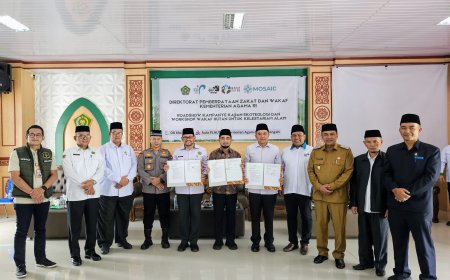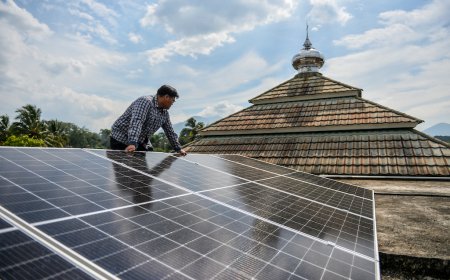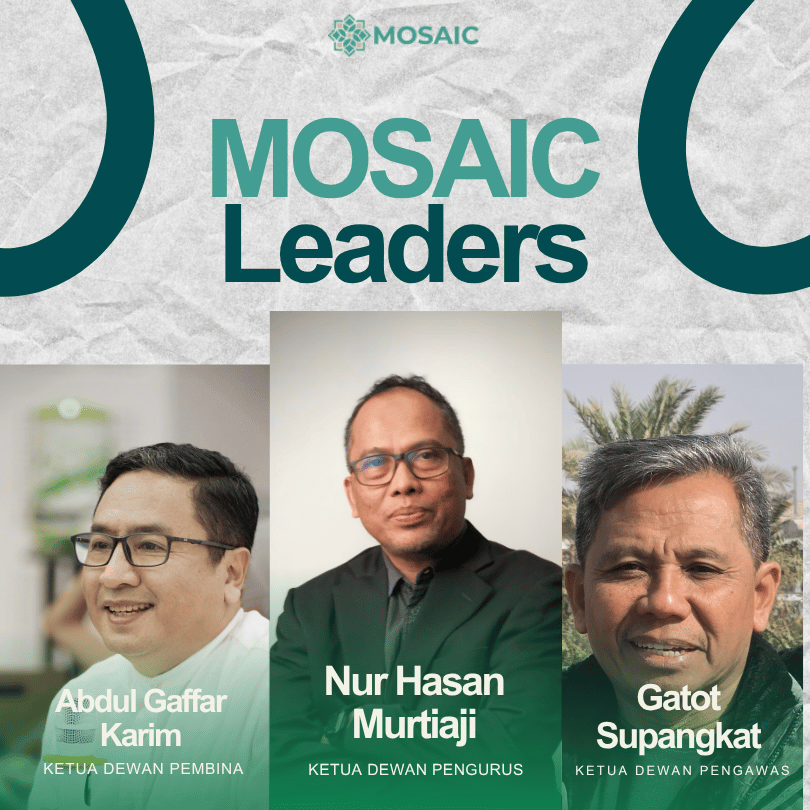Eco-friendly Mosque from Cikarang
Masjid Baitul Makmur initiated Gerakan Sedekah Sampah Indonesia (Gradasi) adopted by 36 mosques around Cikarang.
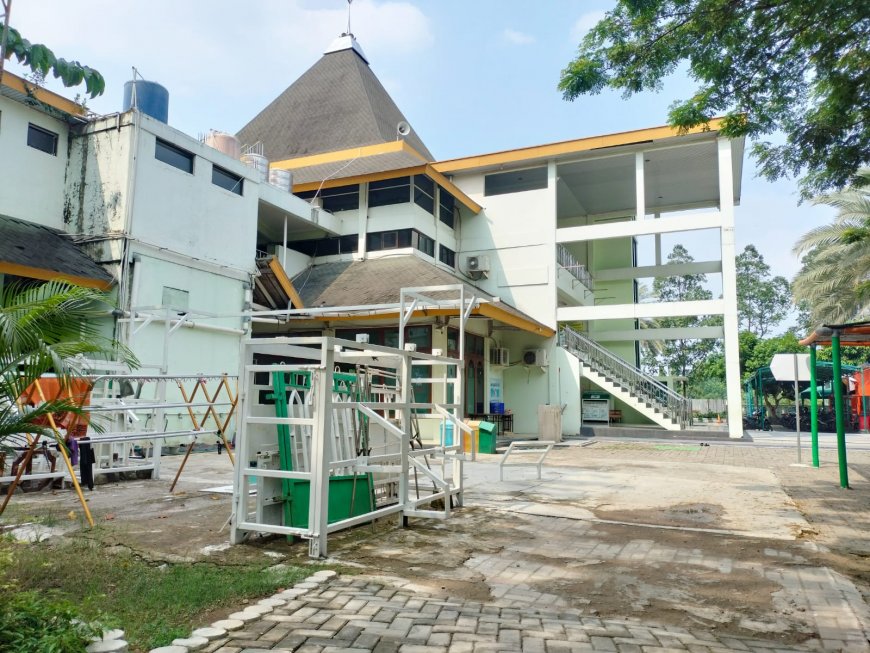
Dozens of children with purple clothes are ready to start Quran classes at Baitul Makmur Mosque, Talaga Sakinah, Bekasi, Monday (11/11/2023). They studied the knowledge of the Quran from Monday to Friday from after mid afternoon until the setting of the sun. Every Friday, they would bring plastic trash from the neighborhood to be collected in a mosque trash bin shaped like a cage. They learn to give thanks even if it's just rubbish.
The manager of the Baitul Makmur Mosque Maryanto said that the Quran education for the students was financed from garbage. They received a scholarship from the Indonesia Waste Charity Movement (Gradasi) program that has been running in the mosque since 2016. Mosques collect plastic waste from nearby residents. Garbage collection is usually done every Friday. After that, the garbage is sold to the coating. Proceeds from the sale of garbage are then used for the education costs of some of the Quran class participants
Not only plastic waste, the mosque also has a charity program of second hand cooking oil and wearable clothing. The crude oil will be resold to a company that will export it to Germany to be processed into biodiesel. The price per liter can reach Rp 6.500 during normal time. Meanwhile, the proceeds of charity clothing will be sold to needy citizens for Rp 1000-Rp 10,000. From the proceeds of the sale, Maryanto explained, the mosque could earn income worth Rp 16,000,000 per month. These funds are used to finance the Quran tahsin program.
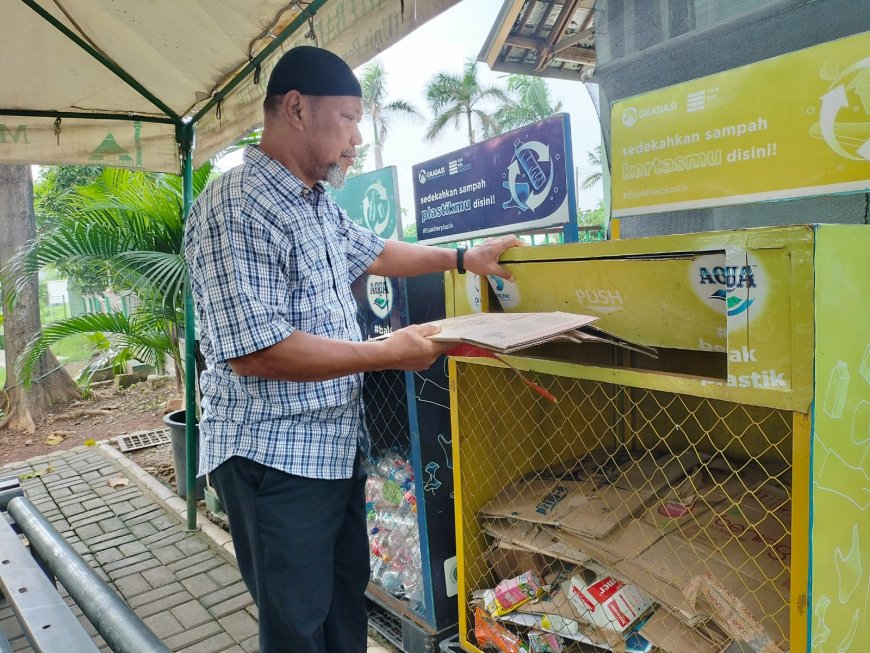
Maryanto explained that the enthusiasm of the residents was very high to collect garbage in the mosque. In the past, mosques were to the point that they could not afford to accommodate the spitting garbage. Not only plastic trash, residents are gifting themselves with electronics and vehicles that are already unused. “The proceeds from the sale of electronics and vehicles are decent,” he said.
The mosque even briefly held the event Gradasi Akbar in 2019 and 2022. At that time, tons of garbage of various kinds were collected in mosques. Many then educated to perform similar movements in their environment. The program was then socialized to the surrounding mosques.
According to Maryanto, the waste charity movement was adopted in 36 mosques located around the West Cikarang area. Deploying the Gradasi program proved to be a solution given that the mosque's capacity could no longer accommodate tons of garbage from the surrounding residents. Gradually, garbage collection at Baitul Makmur Mosque was reduced as residents could donate garbage in nearby mosques.
The Waste Charity Movement has been carried out since 2016 when this mosque led by Ustaz Muhammad Suhapli has just ordained itself as an eco mosque in Indonesia. According to Maryanto, at that time the new management of the mosque wanted to consolidate the mosque like some other mosques in Indonesia. It's just that the administration wants to take a different approach given that it has to catch up with the empowerment of other mosques that are quite far away. “The common one has been running fast like Istiqlal, Jogokariyan. At the direction of the chairman, we are taking a stand in the neighborhood,” Maryanto said during a conversation with MOSAIC at the Baitul Makmur Mosque.
The mosque is also open. Administrators began to register worshippers around housing that had diverse potential. They contribute in their respective fields from information and technology, finance, agriculture to the environment. After being pounded, the mosque then put together six pilot programs, namely garbage alms, rice alms, clothing alms, compost processing, water-friendly mosques to mosques with efficient electricity
In addition to garbage alms, water-friendly mosques are also a program that is felt directly by j amaah. One of them is the use of a tap for ablution with a small opening. In fact, the program was briefly protested by worshippers who are accustomed to ablution with excess water. After an explanation, the worshipper was finally able to understand the application of the frugal ablution tap. The wastewater of ablution is also not wasted. According to Maryanto, the water of the former ablution is drained into the toren which is above. After that, the water is drained by harnessing the force of gravity to water the crops and compostable waste.
The mosque also has a biopori well that serves to absorb rainwater. Together with the presence of towering trees and a lake in front of the mosque, the wells are useful for maintaining groundwater debits during the dry season. “Yesterday's dry season we did not have a drought,” he explained.
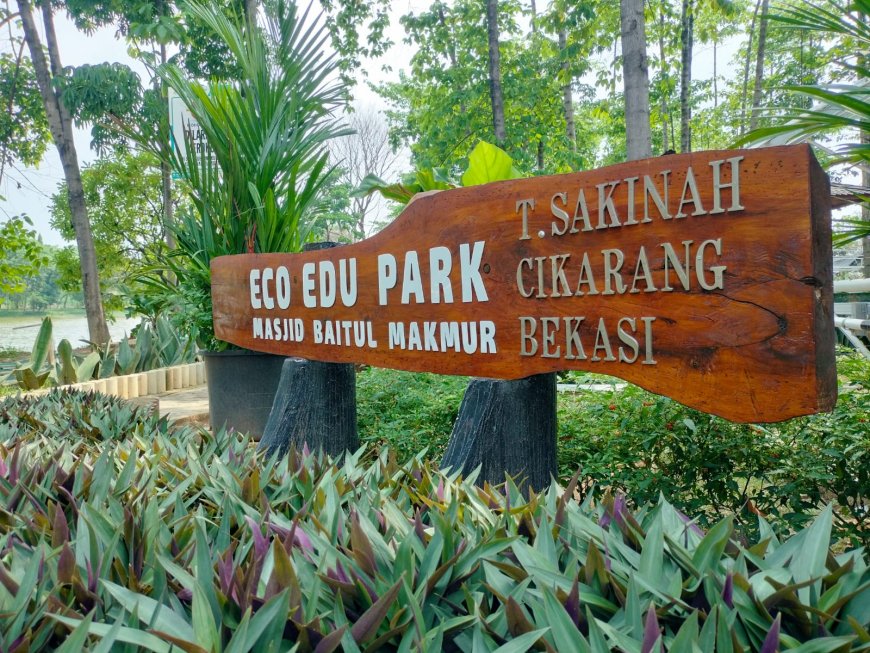
Not only that, the mosque built the Ecoedupark to educate residents about the mosque's environmental vision. In the park, residents can learn how to plant hydroponics, fish pond cultivation, to relax while enjoying the scenery.
Director of the Institute for the Preservation of Environment and Natural Resources (LPH and SDA) of the Indonesian Ulama Assembly (MUI) Hidayat Tri Sutardjo explained that the eco mosque was provided by LPH and SDA MUI in cooperation with the Indonesian Mosque Council (DMI) in 2009. Various mosques that have ecological concepts and have environmental insights are called eco mosques. In Indonesia, he said, there are thousands of mosques that have the concept of eco mosque. However, the mosques do not have a community
Hidayat, who is also a member of the Muslim Collaboration for the Impact of Climate Change (MOSAIC), admitted that there has been no research on whether the eco-mosque concept can affect the impact of climate change or not. Nevertheless, the administrator of the Muhammadiyah Environmental Assembly said that the existence of the ecomasid can at least reduce the impact of climate change that is already felt in Indonesia. For example, mosques that plant trees are able to absorb carbon well. The trees also provide the gift of free oxygen. “Why go through the mosque? Because the mosque has worshippers. The proclamation is not enough for this oral bill to be practiced then it must be a proclamation bill thing. There has to be movement from the mosque,” he said.

